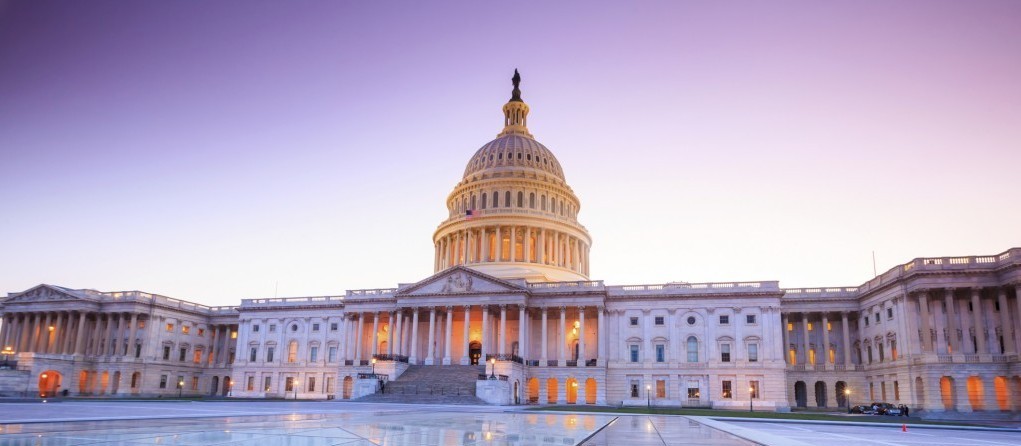The Future of Copyright
Copyright has been in our nation’s DNA since our founding fathers granted Congress “the power . . . to promote the progress of science and useful arts, by securing for limited times to authors and inventors the exclusive right to their respective writings and discoveries,” in Article I of our Constitution. And for over two hundred years, copyright has helped make America the world’s technological, economic, and cultural leader.
So I was thrilled this past week to have the opportunity, in my first public appearance since joining the Motion Picture Association of America seven months ago, to join Chairman Bob Goodlatte (R-CA) and others at an event sponsored by Citizens Against Government Waste not only to discuss copyright’s role today, but also to peer into the future.
Because of the framework our founding fathers so wisely created, America’s core copyright industries stand today as a vital part of our social and economic well-being. In 2013 those industries added more than $1.1 trillion dollars in value to the U.S. GDP, accounting for almost 7% of our economy. The motion picture and television industry, one of the most prominent among them, directly and indirectly employs 1.9 million Americans, and annually pays out $111B in wages and $15.9B in sales, state income, and federal taxes.
But despite its many benefits, copyright, and the industries that rely on it, face big challenges today, especially from the ease with which content can be stolen, replicated, transmitted, and distributed online. A study by Envisional showed that an estimated 24% of all global Internet traffic is dedicated to infringing content. That’s particularly important to our industry because once stolen, a movie or TV show can be made globally available in a remarkably short period of time. Within 19 hours of airing, for example, the midseason premier of “The Walking Dead” was pirated 1.29 million times. And this spike in piracy occurred despite the fact that the episode was made available legitimately in more than 125 markets across the globe within 24 hours of its U.S. debut.
So how do we confront this challenge? We at the MPAA are tackling this issue from several different directions. With WhereToWatch.com, we’re increasing consumers’ knowledge about the incredible amount and variety of legal online content available in the U.S. today.
And because foreign markets are not only important and growing sources of revenue for the American movie and TV industry, but also significant sources of stolen content, we are supporting the inclusion of both meaningful market access and strong intellectual property protections in trade agreements and trade legislation. In 2012 alone, movie and TV exports reached $16.2 billion and generated a $13.6 billion trade surplus, so it is critical that trade agreements and legislation bolster further growth and protect against the online theft of American products and services.
One of the most effective ways in which we are tackling IP theft is by working with others within the Internet ecosystem to create voluntary initiatives to combat piracy. Pirate sites hosting stolen content are typically commercial enterprises using the Internet to profit from illegal activity. Like operators of sites that sell pharmaceuticals without prescriptions, steroids to minors, illegal drugs and child pornography, operators of pirate sites usually have one motive : to make a buck from illegal activity. Indeed, it is not infrequent for operators of such websites to be involved in more than one area of illegal activity.
And many of these websites have an air of legitimacy about them. Many can be discovered easily through search engines, frequently have a well-recognized U.S.-registered domain like .com or .net, include advertising for legitimate brands, and/or accept forms of digital payment like credit cards.
So we are participating in voluntary initiatives with a variety of players in the Internet ecosystem, working to develop cooperative, market-based solutions, to protect consumers and creators from illegal activity. We are already working with ISPs on the Copyright Alert System; with several prominent payment processors; with various app markets; and with brands, advertising agencies and networks, and others in the advertising community, to help insure that legitimate ads don’t support illegitimate sites, and with user-generated content web video sites, which have employed sophisticated technology that filters out infringing material.
Legitimate businesses don’t want their brands to be associated with criminal activity, or for their customers to be exposed to cybercrimes – that’s just not good business. So we look forward to continuing and expanding these types of voluntary efforts by engaging other Internet intermediaries and policymakers who share our views, and working together to fulfill the promise of the copyright framework created by our founding fathers as we meet the demands and challenges of the digital age.


